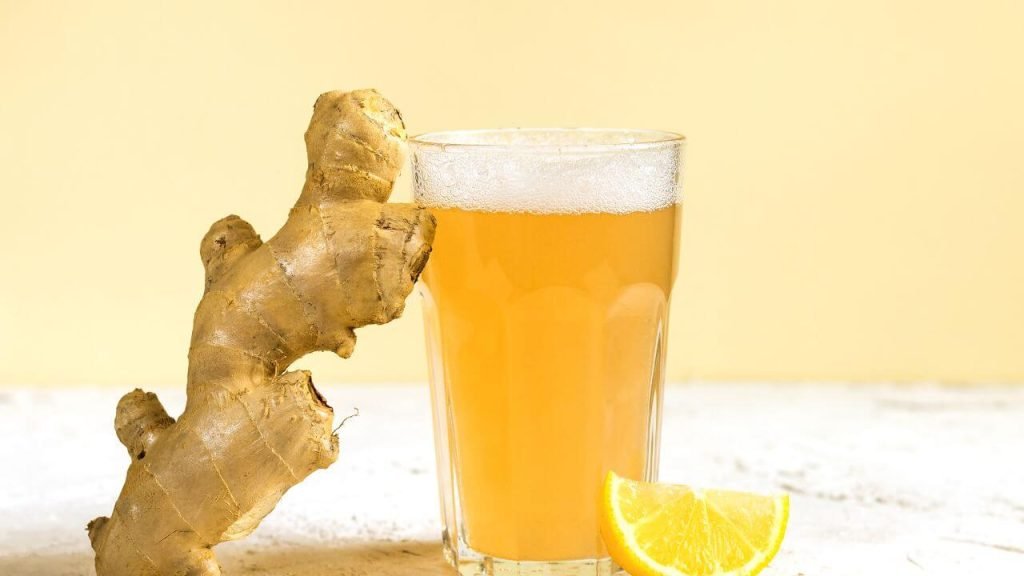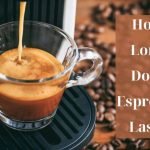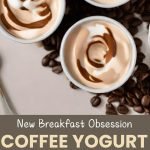Contents
- 1 Does Ginger Ale Have Caffeine?
- 1.1 What Is Ginger Ale?
- 1.2 Ingredients in Ginger Ale
- 1.3 Types of ginger ale
- 1.4 Does Ginger Ale Have Caffeine?
- 1.5 Does Canada Dry Ginger Ale Have Caffeine?
- 1.6 Does Seagram’s Ginger Ale Have Caffeine?
- 1.7 Does Schweppes Ginger Ale Have Caffeine?
- 1.8 Does Vernors Ginger Ale Have Caffeine?
- 1.9 Does Diet Ginger Ale Have Caffeine?
- 1.10 Health Benefits of Ginger Ale
- 1.11 Side Effects Of Drink Too Much Ginger Ale
- 1.12 Difference Between Ginger Ale And Ginger Beer
- 1.13 How To Make Your Own Caffeine-Free Ginger Ale?
- 1.14 Some Recipes With Ginger Ale
- 1.15 FAQs: Does Ginger Ale Have Caffeine?
- 1.15.1 Q: Is it safe to drink ginger ale while pregnant?
- 1.15.2 Q: Can children drink ginger ale?
- 1.15.3 Q: Is diet ginger ale healthier than regular ginger ale?
- 1.15.4 Q: Does ginger ale contain any caffeine?
- 1.15.5 Q: Are all brands of ginger ale caffeine-free?
- 1.15.6 Q: Is ginger ale an energy drink?
- 1.15.7 Q: Is there a difference between ginger ale and ginger soda?
- 1.15.8 Q: Can I substitute ginger beer for ginger ale in recipes?
- 1.15.9 Q: Is ginger ale healthier than Coke?
- 1.15.10 Q: Who should not drink ginger ale?
- 1.15.11 Q: Which is stronger, ginger ale or beer?
- 1.15.12 Q: Does ginger ale hydrate you?
- 1.15.13 Q: Is ginger ale healthy?
- 1.15.14 Q: Why do people drink ginger ale?
- 1.15.15 Q: Does ginger ale reduce gas?
- 1.15.16 Q: Which ginger ale is best?
- 1.15.17 Q: Can you make ginger ale at home?
- 1.15.18 Q: How long does ginger ale last?
- 1.15.19 Q: Does ginger ale have any alcohol?
- 1.16 Conclusion: Does Ginger Ale Have Caffeine?
- 1.17 Related posts:
- 2 Top 15 Keto Snacks for Christmas You'll Absolutely Love
- 3 How Long Does Espresso Last? Expert Storage Tips
- 4 How to Make Coffee Yogurt: A Comprehensive Guide
- 5 How Much Caffeine in Coffee? Your Ultimate Guide
Does Ginger Ale Have Caffeine?
Ginger Ale has been a popular soft drink for years, often associated with calming stomachs on days when nausea sets in. Does Ginger Ale Have Caffeine? What it could mean for their health?
In this blog post, we will clear up the confusion surrounding ginger ale’s ingredients by exploring whether or not it contains caffeine and examining some of the potential benefits and drawbacks of consuming caffeinated soda. Readers can make informed decisions about including ginger ale in their regular diet by looking more deeply into what makes it tick.
What Is Ginger Ale?

Ginger ale is a carbonated and ginger-flavored beverage that is enjoyed all around the world. This drink has a long history, dating back to the 1800s when it was used as a medical tonic. Today, ginger ale can be found in most supermarkets and is a popular mixer in cocktails.
The key ingredient in ginger ale is ginger, which has many health benefits, including soothing an upset stomach. It typically contains water, sugar or sweeteners, and carbonation agents, giving it a fizzy texture.
Depending on the brand and country of origin, ginger ales vary in flavors and sweetness levels. With its refreshing taste and healing properties, ginger ale is a must-try for anyone who has yet to experience this fizzy beverage.
Ingredients in Ginger Ale
Ginger ale has long been popular for its unique flavor and perceived health benefits. Canada Dry’s Ginger Ale has key ingredients, including carbonated water, high fructose corn syrup, and ginger extract.
In addition to these primary components, the recipe also calls for natural flavors, citric acid, sodium benzoate (as a preservative), and caramel color. Each of these ingredients brings a distinct element to the final product, resulting in a refreshing and delicious drink that has become a staple in households across the globe.
Types of ginger ale
Discover the wonderful world of ginger ale! Here are some fascinating varieties to tantalize your taste buds:
Regular: Sodas and classic ginger ales with the perfect blend of ginger, sugar (or high fructose corn syrup), and delightful carbonation. They may also feature additional ingredients, depending on the brand.
Dry: Brace yourself for a spicy kick! This unique variation boasts a “drier” ginger flavor, achieved through manufacturers’ special sourcing and processing techniques.
Diet: Looking for a guilt-free option? Diet ginger ale brings the same delightful taste but with artificial or calorie-free sweeteners instead of sugar.
The choice of the ultimate ginger ale experience solely depends on your preferences for taste and ingredients. So go ahead, explore, and find your perfect match!
Does Ginger Ale Have Caffeine?

The answer to this question is both yes and no. While traditional ginger ale does not contain caffeine, some brands may add it as an extra ingredient for flavor or energy-boosting purposes.
For example, Canada Dry’s Ginger Ale has no caffeine listed on its ingredient label, making it a safe choice for those looking to avoid caffeine in their beverages. However, others like Barq’s Ginger Ale, Bawls Ginger Ale, and Ale 8 One Ginger Ale have caffeine. Checking the ingredient label is essential if you are concerned about consuming caffeine.
Does Canada Dry Ginger Ale Have Caffeine?
Canadians love their ginger ale, and one of the most popular brands is Canada Dry. But does Canada Dry Ginger Ale have caffeine? While some brands of ginger ale contain small amounts of caffeine, Canada Dry does not.
This makes it a great, caffeine-free option for those seeking a refreshing and soothing alternative to carbonated beverages. Whether enjoying it alone or mixing it with your favorite spirits, Canada Dry Ginger Ale has been a trusted and beloved drink for over 100 years.
Does Seagram’s Ginger Ale Have Caffeine?
Like Canada Dry, Seagram’s is another popular brand of ginger ale. And similarly, their regular ginger ale does not contain caffeine. However, they have a diet with caffeine as an added ingredient for flavor and energy-boosting purposes.
So, if you’re seeking a caffeine-free option, stick with the regular Seagram’s Ginger Ale. But if you need an extra kick, the diet version may be worth trying.
Does Schweppes Ginger Ale Have Caffeine?
Schweppes Ginger Ale is a popular beverage that is enjoyed by many. Although ginger ale is often soothing, some consumers may wonder whether it contains caffeine.
Those sensitive to caffeine or actively trying to avoid it may benefit from knowing that Schweppes Ginger Ale is caffeine-free. This makes it an excellent alternative to soda or energy drinks for those who want a milder option.
Schweppes Ginger Ale is a refreshing and delicious choice for anyone in the mood for a satisfying carbonated drink without the added caffeine.
Does Vernors Ginger Ale Have Caffeine?
Vernors is a popular ginger ale brand in the United States, known for its bold and distinct flavor. But does Vernors Ginger Ale have caffeine? The answer is no, Vernors Ginger Ale does not have caffeine.
Its unique blend of ginger and other natural flavors gives it a distinct taste that sets it apart from other ginger ales in the market. Whether you’re looking for a refreshing drink or something to soothe your upset stomach, Vernors Ginger Ale is the perfect choice.
Does Diet Ginger Ale Have Caffeine?
Diet ginger ale has become popular recently thanks to its low-calorie and refreshing qualities. However, those sensitive to caffeine may wonder if this fizzy drink contains any stimulants.
The good news is that diet ginger ale is caffeine-free, making it a safe choice for those who want to enjoy a soda without feeling jittery. While some brands may contain small amounts of caffeine, most diet ginger ale variants are free from this substance. So, if you’re looking for a caffeine-free alternative to traditional sodas, reach for a cold can of diet ginger ale.
Health Benefits of Ginger Ale
Aside from being a tasty beverage, ginger ale has potential health benefits.
- It contains antioxidants that help reduce inflammation and protect against illnesses.
- It can reduce nausea and morning sickness due to its natural ginger content.
- Ginger ale also helps improve digestion and can increase circulation.
- Studies have found that it has the potential to lower blood sugar levels and cholesterol, as well as prevent certain types of cancer.
However, it’s important to note that these benefits may vary depending on the individual and their overall health.
Side Effects Of Drink Too Much Ginger Ale
Moderation is key when it comes to enjoying ginger ale. While it has potential health benefits, consuming too much can also negatively affect your body.
- Ginger ale is high in sugar, contributing to weight gain and increasing the risk of developing diabetes or other chronic diseases.
- The carbonation in ginger ale may cause bloating and discomfort for some individuals.
- Drinking too much ginger ale can also lead to an upset stomach or heartburn, especially for those with pre-existing digestive issues.
It’s important to listen to your body and consume any beverage in moderation to avoid potential negative effects on your health. Ginger ale can be a delicious addition to your diet but should not be consumed excessively. Moderation is key for healthily enjoying any drink.
Difference Between Ginger Ale And Ginger Beer
Ginger ale and ginger beer are often confused but differ in taste, ingredients, and production process.
- Ginger ale is a carbonated soft drink made with ginger extract, sugar or sweeteners, and carbonated water. It has a milder flavor compared to ginger beer.
- Ginger beer is brewed using natural fermentation methods and typically contains a stronger ginger flavor and higher alcohol content.
- Ginger beer is also often cloudier due to natural ingredients, while ginger ale has a clear and transparent appearance.
Both drinks can be refreshing and delicious, but it’s important to understand their differences before choosing one over the other. Ginger ale is typically more widely available and suitable for those looking for a non-alcoholic beverage. In contrast, ginger beer may be preferred by those seeking a stronger ginger taste and slight alcohol content.
How To Make Your Own Caffeine-Free Ginger Ale?
Making your caffeine-free ginger ale is easier than you may think. Here’s a simple recipe to try at home:
Ingredients:
- 2-inch piece of fresh ginger, peeled and grated
- 1/4 cup honey or sugar
- 1/4 cup freshly squeezed lemon juice
Sparkling water or club soda
Instructions:
- In a small saucepan, add the grated ginger and honey or sugar. Heat on medium-high until the mixture starts to simmer.
- Remove from heat and let it cool for 10 minutes.
- Strain the mixture through a fine-mesh sieve into a jar or bottle.
- Mix the strained ginger syrup, lemon juice, and sparkling water or club soda in a separate pitcher.
- Serve over ice and enjoy your homemade caffeine-free ginger ale!
Some Recipes With Ginger Ale
Ginger ale can also be used as an ingredient in various recipes, adding a unique and refreshing twist to classic dishes. Here are some ideas to try:
- Ginger Ale Glazed Ham – A popular dish for special occasions, ginger ale to glaze ham adds a touch of sweetness and tanginess.
- Ginger Ale Float – A fun and easy dessert option, add a scoop of your favorite ice cream to a glass of ginger ale for a delicious float.
- Ginger Ale Mojito – A refreshing and non-alcoholic twist on the classic mojito, using ginger ale instead of soda water adds a flavorful kick.
There are endless possibilities when it comes to incorporating ginger ale into recipes. Get creative and experiment with this tasty beverage!
You may like:
- How Much Caffeine In Refresher Starbucks?
- How To Make Matcha Latte at Home
- Delicious Pumpkin Cream Cold Brew
FAQs: Does Ginger Ale Have Caffeine?
Q: Is it safe to drink ginger ale while pregnant?
A: While ginger ale can help with nausea and morning sickness, it’s always best to consult your doctor before consuming any food or beverage during pregnancy.
Q: Can children drink ginger ale?
A: Ginger ale is generally safe for children to consume in moderation. However, the sugar content should be considered, and it’s always best to consult a pediatrician.
Q: Is diet ginger ale healthier than regular ginger ale?
A: Diet ginger ale typically has fewer calories and sugar than regular ginger ale. However, both should be consumed in moderation as they contain artificial sweeteners and carbonation.
Q: Does ginger ale contain any caffeine?
A: While some brands may contain small amounts of caffeine, most ginger ale variants are free from this substance. It’s always best to check the label for specific ingredients.
Q: Are all brands of ginger ale caffeine-free?
A: No, It’s important to check the labels of individual brands, as some may contain small amounts of caffeine. However, many ginger ale variants are caffeine-free.
Q: Is ginger ale an energy drink?
A: No, ginger ale is not considered an energy drink. While it may provide a slight energy boost due to the sugar content, it does not contain any caffeine or other stimulants typically found in energy drinks.
Q: Is there a difference between ginger ale and ginger soda?
A: Yes, there is a difference between ginger ale and ginger soda. Ginger ale is a carbonated soft drink made with ginger extract, while ginger soda is typically made with real ginger pieces and has a more intense flavor.
Ginger soda may also contain higher sugar levels or artificial sweeteners than ginger ale. Both can be enjoyable beverages but vary in taste and ingredients.
Q: Can I substitute ginger beer for ginger ale in recipes?
A: Depending on the recipe, you may be able to substitute ginger beer for ginger ale. However, keep in mind that ginger beer typically has a stronger flavor and higher alcohol content compared to ginger ale, which may alter the taste and consistency of the dish.
Q: Is ginger ale healthier than Coke?
A: It’s difficult to compare ginger ale and coke as both are carbonated drinks with added sugar or sweeteners. However, ginger ale may have a slightly healthier reputation due to natural ginger extract and lower sugar content in some variants. As always, moderation is key for both beverages.
Q: Who should not drink ginger ale?
A: Ginger ale is generally safe for most people to consume, but those with allergies or sensitivities to ginger should avoid it. It’s also important to monitor sugar intake and consult with a doctor if you have any underlying health conditions. O
Q: Which is stronger, ginger ale or beer?
A: It depends on the brand and specific recipe, but in general, ginger beer will have a stronger ginger flavor and higher alcohol content compared to ginger ale. However, both drinks can vary greatly in taste and potency.
Q: Does ginger ale hydrate you?
A: Ginger ale is mostly water, which can contribute to hydration. However, the added sugar or artificial sweeteners may have a slight diuretic effect, so drinking plenty of plain water is important.
Q: Is ginger ale healthy?
A: Ginger ale can have potential health benefits due to the use of ginger and its anti-inflammatory properties. However, it’s still a sugary beverage and should be consumed in moderation as part of a balanced diet.
Q: Why do people drink ginger ale?
A: Ginger ale has been used for centuries as a natural remedy for nausea, stomach upset, and cold symptoms. It also provides a refreshing and unique taste that can be enjoyed independently or in various recipes. People drink ginger ale for its potential health benefits and enjoyable flavor.
Q: Does ginger ale reduce gas?
A: According to Dr. Matthew Goldman’s insightful blog post for the Cleveland Clinic, he highlights how carbonation and sugar in beverages can exacerbate bloating, gas, and indigestion. It’s important to note that even diet ginger ale may be harmful since our bodies might not digest artificial sugars as effectively.
Q: Which ginger ale is best?
A: The best ginger ale will vary based on preference and taste. Some popular brands include Canada Dry, Schweppes, and Reed’s Ginger Ale. It’s always worth trying different brands to find your favorite!
Q: Can you make ginger ale at home?
A: Yes, it is possible to make homemade ginger ale using fresh ginger root, sugar, and carbonated water. There are many recipes available online to try. However, remember that homemade ginger ale may have a different taste or consistency than store-bought versions.
Q: How long does ginger ale last?
A: Unopened bottles of ginger ale can typically last for several months, while opened bottles should be consumed within a week. However, it’s always best to check the expiration date on the bottle for specific guidelines. It’s also important to properly store ginger ale in a cool, dry place away from direct sunlight.
Q: Does ginger ale have any alcohol?
A: Most commercially produced ginger ale does not contain any alcohol. However, some homemade versions or artisanal brands may contain trace amounts of alcohol due to fermentation.
Conclusion: Does Ginger Ale Have Caffeine?
In conclusion, aside from some exceptions, ginger ale does not contain caffeine. It is a non-alcoholic soda that people of all ages can enjoy. Its distinct flavor and refreshing bubbles make it a delicious beverage choice for any occasion.
For those of you looking for an alternative to caffeinated drinks, ginger ale may be the perfect option since it contains no caffeine. Above all else, remember to always read the ingredients before purchasing any beverage to know exactly what’s included in your drink and what could still have caffeine added to it!
Share this post with your friends and family so they can learn the facts about one of the most popular alcoholic soda options out there.
Related posts:

Hello, my name is Mary. I’m a passionate food and drink enthusiast, sharing flavorful recipes, creative drinks, and culinary inspiration from around the world. With a love for exploring new tastes and traditions, I bring a mix of easy-to-follow guides and expert tips to make every meal an adventure. Follow along for delicious discoveries and a toast to positive living!




